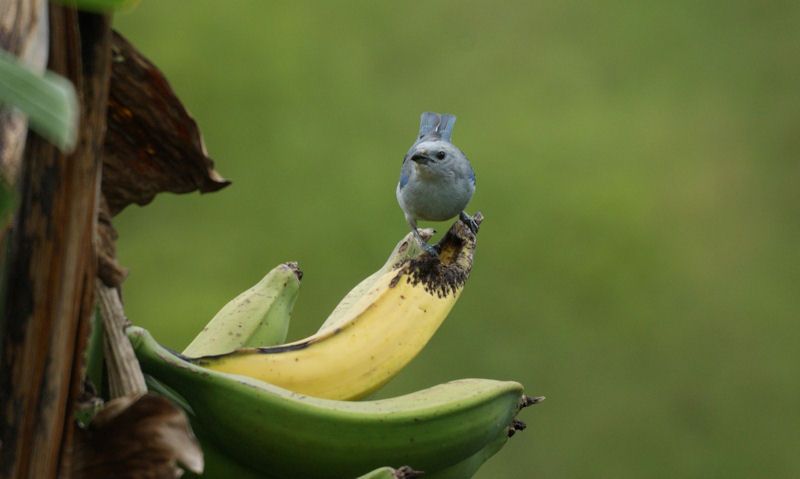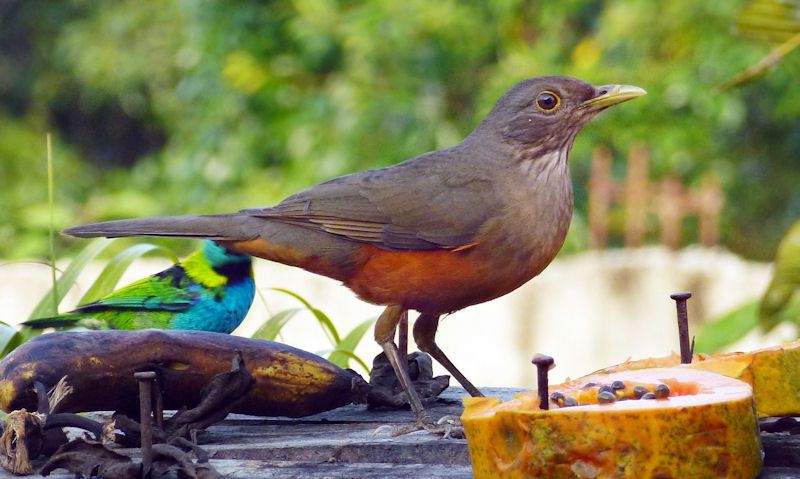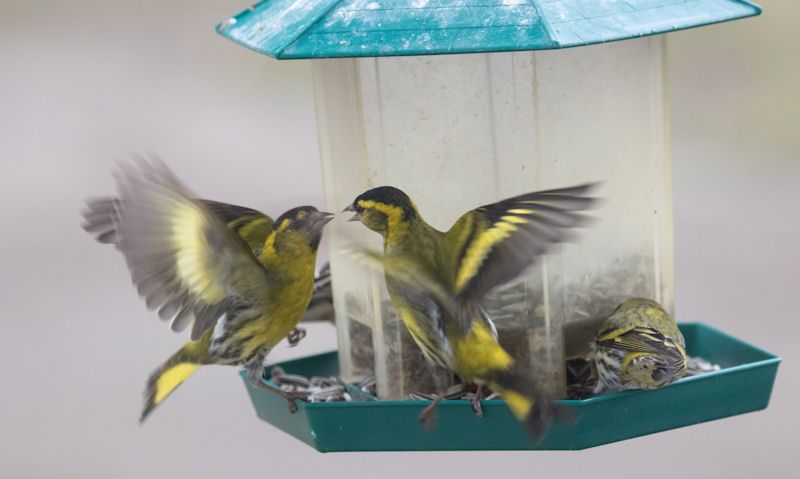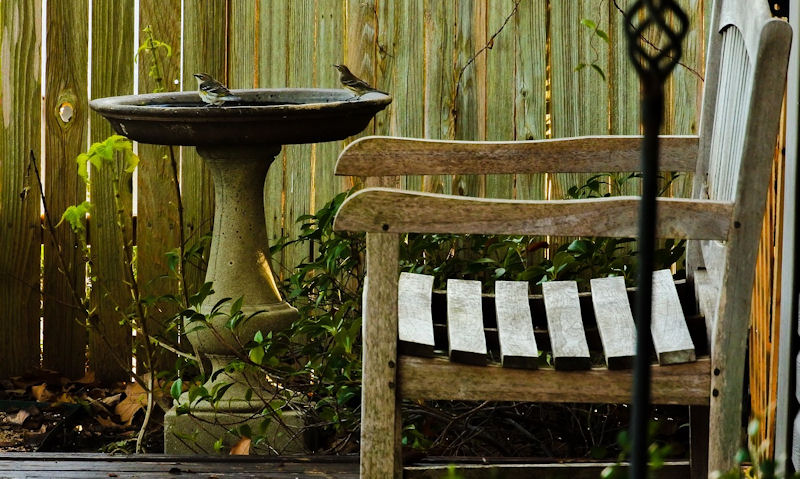Do wild birds eat bananas
Did you know you can feed all kinds of tropical fruits to wild birds, and while not a guarantee of success, bananas make an interesting option.
Wild birds will eat bananas but would prefer there favourites if on offer. Not many wild birds are set to experiment with this new soft fruit, but the Robin will sure give it a try. Others include the Starling, Jackdaws, Moorhen, Pied Flycatcher, Stonechat, Whitethroat and Willow Warbler.
People often don't think about offering tropical fruit to wild birds here in the UK, but it sure makes for an interesting watch as the birds wonder if they should try it.
British birds that visit your garden can all eat fruit with huge heath benefits, but very few will bite, let allow take any interest.
If you want it could be a good idea to setup a fruit salad by offering a peeled banana; along with a cut up apple, perhaps a chopped up grape including citrus fruit if you can spare it.
Feeding a banana to birds in the garden has its benefits as the banana only needs to be peeled, while leaving under a bird table or on a flat surface.
Offer a banana at different stages of ripeness; including unripe where its green, ready to eat when its yellow - then when it has black for extra sweetness.
Birds do not have strong taste buds nor a sense of smell, so do make sure the banana is in sight and accessible to all if you're going to be successful.
Not just for tropical birds

While most bananas in the world are grown in South America, its there where the growers have to contend with nuisance birds munching on there crops.
However, here in the UK bananas are not native so therefore its not a food type British birds will be used to.
That is not to say a small number of your favourite garden visitors will give it a try.
So expect the frequent Robin to stop by for a nibble but remember only because its left out, its not to say it will have any interest.
You're unlikely to see the common Tit or Sparrow nibbling on a soft banana but a Starling could sure give it a try.
Where there's food here comes along the wild birds you would rather keep away, so don't be surprised to see visiting crows or even seagulls.
Other species of wild birds expected try bananas including other fruits birds can eat are Jackdaw, Moorhen, Pied Flycatcher, Stonechat, Whitethroat and Willow Warbler.
Are bananas good for birds
Much like humans enjoying a healthy banana wild birds are set to benefits from the nutrients contained within the fruit.
Less so than people mind you but that small amount of fibre will play its part in keeping them healthy.
Fibre is set to assist in there digestive system while making sure they poop normally.
Over the course of feeding bananas to wild birds in the garden you will want to do two things; offer them unripe (green) bananas including a fully ripe one.
On top of that there's no harm in offering your feathered friends a sweeter (black) banana.
While wild birds have little no sense of smell, the sweeter taste just may be more pleasing with little taste buds they have.
Bananas are incredibly good for birds but like most healthy things in life, it will be a hard task getting the birds in the garden to consume a banana.
How to prepare the banana
Not much can be done to entice birds to taste the banana you've left out for them in terms of taste or smell as birds have little of both.
So what you can do is prepare the banana in a way that will be more pleasing to the eye.
The bright yellow, often unripe green or black patches of the banana peel can attract birds to the banana, but its how you prepare it that matters.
Forget about offering a banana to the birds unpeeled as it won't be enough to attract them to peck away.
In fact the peel will be too hard to penetrate for smaller garden birds so therefore, will reduce the possibility of them ever trying it.
Instead I advice you to partially pull the banana peel back so the peel is left on still, but will still make the edible flesh easily accessible.
Benefits to keeping the peel firmly on the banana will do one of two things, first; it will keep the banana weighed down without movement, making it easy for birds to feed, and two...
On a windy day at least that extra weight is sure to keep the banana firmly in place.
Where in the garden to sit a banana
Its where in the garden you should keep the banana that matters as it would depend on your success or failure.
Out of sight and the birds that will hopefully feed on it won't see it at all so therefore will make it harder for you to see a bite.
On the other hand if the banana is in an area accessible to all; larger, nuisance wild birds are sure to swoop down and take it away.
What I would recommend if you can is position the peeled banana on its side under a covered bird table.
Not all by its own mind you as you will want to place the banana by there regular daily dose of bird food - including seeds, fat balls or peanuts.
Isolating a banana away from the food source will only be ignored in favour of there go-to food.
If you're unable to position the banana under a bird table then a flat surface around the garden will do, providing you know it won't be disturb by nuisance birds.
It must also be out of reach of predators or pets that will simply eat or take the banana away.
Conclusion
One common British bird that is likely to feed on a banana if left out with not too much food supply left out elsewhere, is that of the Robin.
Its also possible to see interest from Starlings including the plentiful Sparrows.
Having said that its not to say other unmentioned wild birds won't give it a try, but there's also no guarantee you'll receive interest at all.
Where there's a food source there's trouble, so do make sure to not bother if you're only getting visits from crows or seagulls.
While there are common birds to welcome to try a banana others can experience a visit from one of the Jackdaw, Moorhen, Pied Flycatcher, Stonechat, Whitethroat and Willow Warbler who are known to eat fruit.
Bananas are incredibly healthy for wild birds so therefore its encouraged you do offer them a supply of fruits to try.
Nutritional value includes vitamins and the all important fibre for keeping a healthy bowel movement.
Prepare the banana by partially peeling it as to create a weight to stop it being blown away, as well has stopping the banana moving as the birds eat.
Don't feed the banana to birds in feeders as it will be messy and difficult for them; so instead leave it under a bird table or a flat surface in the garden.
Keep it out of reach of pets while making sure it doesn't endanger wild birds from predators.


